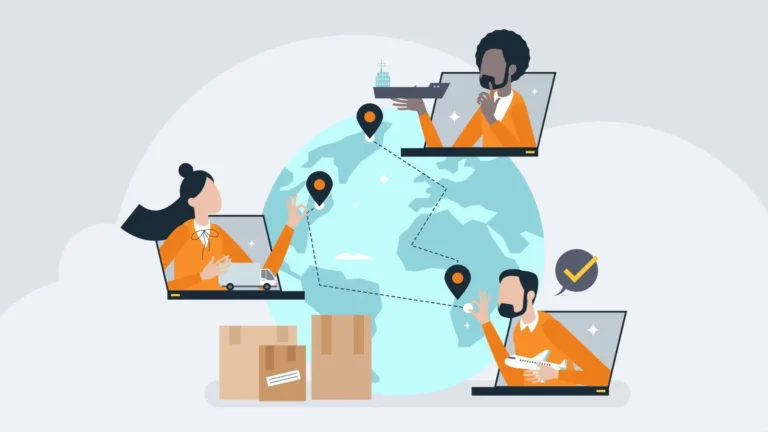Many beginners struggle when importing from China. Finding trustworthy suppliers feels overwhelming, and scams are a real concern. That’s where sourcing agents come in. In this guide, I’ll answer the top 10 questions buyers ask about China sourcing agents — from costs to scams — so you can import safely.
A China sourcing agent is a professional or company that helps businesses source products from Chinese suppliers. They handle supplier verification, price negotiation, quality inspections, and shipping arrangements. For small businesses and beginners, sourcing agents reduce risks, save time, and simplify communication. While they charge fees, their expertise often saves more money than going direct. Choosing a reliable agent ensures you get quality products, fair pricing, and protection against common scams.
Now, let’s dive deeper into the most common questions buyers ask when working with China sourcing agents — covering everything from their role to hidden costs and avoiding fraud.
1. What is a China sourcing agent and how do they work?
A China sourcing agent is essentially your bridge between you and Chinese suppliers. Instead of you spending weeks searching through Alibaba or 1688.com, the agent uses local knowledge to:
- Identify reliable factories.
- Negotiate prices on your behalf.
- Inspect product quality before shipping.
- Handle logistics, paperwork, and customs compliance.
Most agents work on commission or flat fees. Think of them as your procurement partner on the ground in China.
👉 Example: If you’re a beginner selling kitchen gadgets on Amazon, a sourcing agent ensures you don’t get stuck with low-quality or counterfeit goods.
2. How to find a sourcing agent in China?
Finding the right agent is critical. Here are practical steps:
- Check their location – Yiwu, Guangzhou, and Shenzhen are major hubs.
- Look for experience – Agents specializing in your product category are better.
- Ask for references – Reliable sourcing companies like tummosourcing share client case studies.
- Verify licenses – A legitimate agent should be a registered business in China.
- Evaluate communication – English fluency and responsiveness are crucial.
- Inspect quality control processes – Ask how they handle product testing and defects.
👉 Pro tip: Check platforms like Sourcing Agent China Reddit threads for real buyer reviews before committing.
3. How do I find China suppliers without an agent?
Some buyers prefer going direct. Here are the most common routes:
- Alibaba – Best for bulk orders with verified suppliers.
- Global Sources – Great for electronics and niche products.
- 1688.com – A Chinese-only site with cheaper pricing (best if you know Mandarin or hire a translator).
- Made-in-China – A platform similar to Alibaba, with more factory-direct suppliers.
- Trade shows – The Canton Fair in Guangzhou is a huge sourcing event.
While this approach saves on agent fees, the risk of scams, miscommunication, and hidden costs is higher. Beginners usually benefit from starting with an agent.
4. Is a sourcing agent worth it for small businesses?
This is one of the top buyer concerns. The short answer: yes, in most cases.
Benefits:
- Reduce risk of scams.
- Save time in supplier searches.
- Professional negotiation gets you better prices.
- Quality inspections protect your reputation.
Downside:
- Added fees (usually 3–10% of order value).
- Relying on a third party may feel risky if you don’t fully trust them.
👉 For small businesses, the money saved by avoiding defective shipments usually outweighs the agent’s fee.
5. Pros and cons of using China sourcing agents
Let’s break this down clearly:
✅ Pros
- Local knowledge of suppliers and markets.
- Help with language barriers.
- Manage logistics and customs paperwork.
- Can spot fraudulent suppliers.
- Provide product development support (if needed).
❌ Cons
- Fees cut into profit margins.
- Some “agents” are middlemen with no real expertise.
- Dependence on them if you lack your own supply chain knowledge.
The key is finding transparent, experienced agents with real factory connections.
6. What are typical China sourcing agent fees?
Costs vary depending on order size, product type, and services provided. Here’s what you can expect:
- Commission-based fees – 3–10% of order value.
- Flat fees – $300–$1,000 per project (common for smaller orders).
- Additional charges – Some agents charge for quality inspections, samples, or factory visits.
👉 Example: If your order is worth $20,000 and the agent charges 5%, you’ll pay $1,000 in fees. But if they save you 15% in negotiations and prevent $5,000 worth of defective products, the math works in your favor.
For transparency, always ask for a clear contract with a breakdown of services and fees.
7. How to choose the best China sourcing agent?
Here’s a checklist to evaluate agents:
- Reputation – Look at China sourcing agent reviews online.
- Specialization – Do they handle your product category? (e.g., textiles, electronics, toys).
- Transparency – Do they disclose supplier details? Beware of agents who keep factories secret.
- Communication – Do they provide timely updates and photo/video proof of inspections?
- Network size – Large agents may have access to better suppliers.
- Cultural fit – You should feel comfortable trusting them with your money.
8. Scams to avoid when hiring sourcing agents in China
Unfortunately, scams are common. Watch out for:
- Fake “agents” who just connect you to random suppliers on Alibaba and take a cut.
- Kickbacks – Some agents secretly get commissions from factories while charging you full fees.
- Hidden markups – Overpricing products and pocketing the difference.
- No transparency – Refusing to share supplier names or factory addresses.
👉 Red flag: If an agent avoids video calls, won’t provide business licenses, or pressures you into big orders, walk away.
Always start with small trial orders and verify everything independently.
9. China sourcing websites vs. sourcing companies: Which is better?
- Sourcing websites (like Alibaba, Global Sources, Made-in-China) give you direct access to suppliers. Pros: cheaper, more options. Cons: higher risk, no middleman to protect you.
- Sourcing companies (like Tummosourcing) provide hands-on service. Pros: local support, quality checks, reduced risk. Cons: added fees.
For beginners, sourcing companies are safer until you gain enough experience to manage factories directly.
Summary
Working with a China sourcing agent can make importing easier, safer, and more profitable. By knowing the costs, risks, and best practices, you’ll avoid scams and build strong supply chains. Have questions? Share your thoughts in the comments — let’s grow smarter together !


